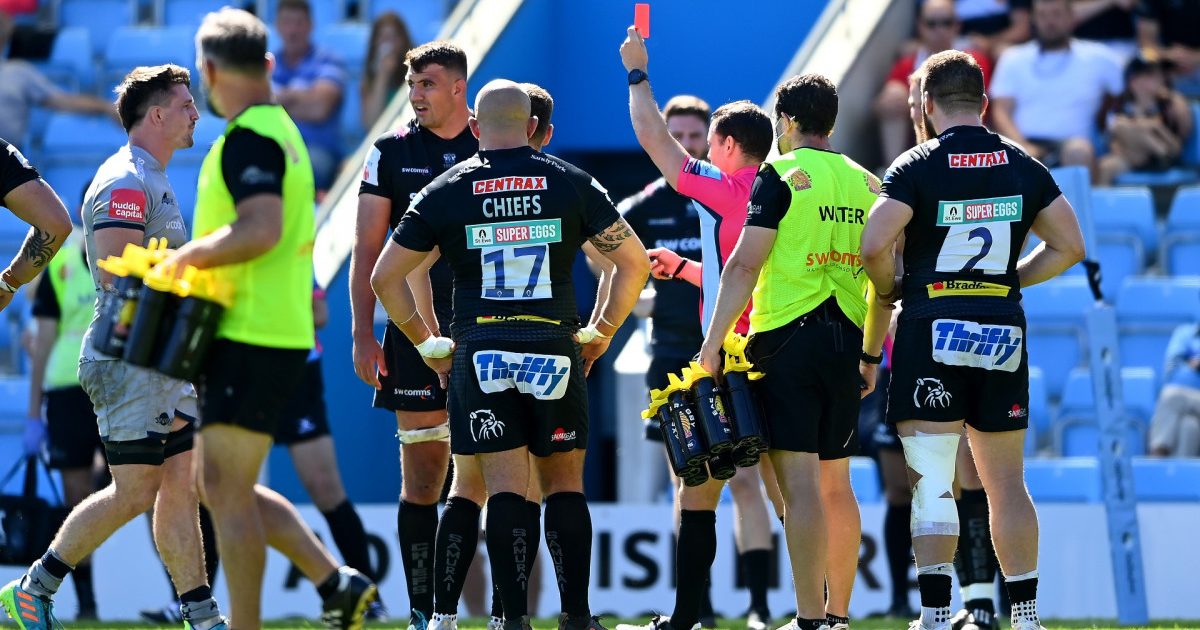Huge blow to Exeter's title hopes as Skinner and Ewers contest charges and lose

Exeter’s hopes that they can successfully go on and defend their Gallagher Premiership title have suffered a huge blow as two of the forwards that started last Saturday’s dramatic round 22 win over Sale – Sam Skinner and Dave Ewers – will now miss the rest of the season following four-game bans.
An RFU statement read: “Sam Skinner and Dave Ewers of Exeter appeared before an online independent disciplinary panel last night [Tuesday]. Skinner was sent off by referee Karl Dickson in the 53rd minute of the match between Exeter and Sale Sharks. This was for dangerous tackling, contrary to World Rugby law 9.13.
“Ewers was cited by independent citing commissioner Paul Hull following the same match. This was for a dangerous tackle on Sale Sharks’ Simon Hammersley contrary to World Rugby law 9.13. The incident took place in the 33rd minute of the match.
“Both players contested the charges against them but they were upheld by the independent disciplinary panel comprising Jeremy Summers (chair) with Mitch Read and Olly Kohn, who gave each player a four-week suspension. Their free to play dates will be confirmed once Exeter’s fixture schedule is known.”
An independent panel statement added: “Both cases involved direct contact with an opponent’s head that carried a high degree of danger.
A gripping spectacle at Sandy Park included one red card and another incident that was talked down from red to yellow#EXEvSAL
https://t.co/KYdjV6OvXQ— RugbyPass (@RugbyPass) June 12, 2021
“None of the mitigating factors set out in the World Rugby head contact process which would have justified the red card otherwise being reduced to a yellow card were present. Neither player accepted the charge and so full mitigation credit was not available to them.”
What was said at the hearing is as of yet unclear as the written judgement has yet to be published on the disciplinary section of the RFU website. The first game of the Skinner and Ewers’ bans will be this Saturday’s semi-final at home to Sale.
Title-chasing Sale has been speaking colourfully about the form and the injury situation of their casualties from last Saturday's loss at Exeter, the team whom the Sharks face again this Saturday #EXEvSALhttps://t.co/Bw0vNwONdp
— RugbyPass (@RugbyPass) June 15, 2021
































